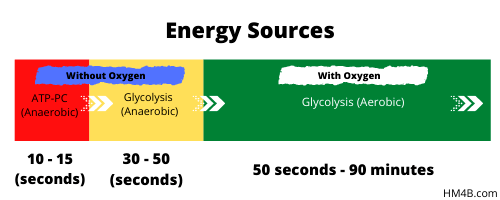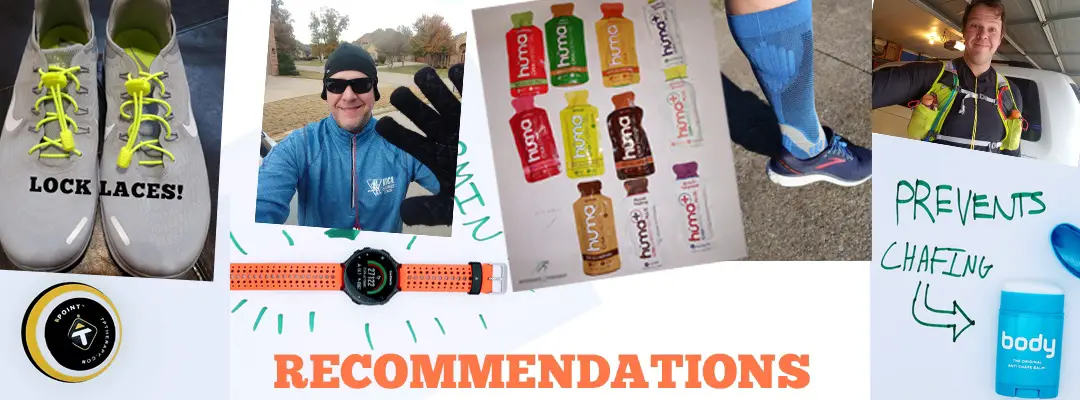Suppose you want to start running. One fine day, you strap on your shoes and head out the door. Everything goes well at first, so you continue running along your route. Yet, just after a minute or two, you run out of energy and stop in your tracks.
Why can’t you run longer than just 3 minutes? Simply put, you don’t have the stamina or endurance to run longer than 3 minutes. Being dehydrated and trying to run too fast will also reduce your ability to run longer.
Reasons Why You Can’t Run For More Than 3 Minutes
Firstly, let’s look at some of the factors limiting just how long you’re able to run.
Stamina (Physical and Mental)
First and foremost, you haven’t built your stamina to carry you through a run beyond 3 minutes. However, you must remember that we’re not just talking about physical stamina. Mental stamina is just as critical because your mind will give up long before your body does!
Endurance
Endurance simply refers to your ability to sustain the same activity over a long period. If you can’t run beyond 3 minutes, that just means your muscles, joints, and organs aren’t used to sustain output for that length of time!
Running Too Fast
When running, it’s essential to only do as much as your body can handle. When you try to run too fast, you’ll end up burning yourself out too soon. You don’t want to run out of energy before you even pass the 3-minute mark!
Lack of Hydration
Yes, being dehydrated can also reduce the total length of time you can run. Your body needs plenty of water to keep going, and lacking hydration means that you’ve already lost before you even start your run.
The first 50 seconds of exercise
During your first 50 seconds of exercise, your body’s core energy source is anaerobic (without oxygen) which allows for 10-15 seconds of instant access energy. After you burn through the ATP-PC energy form, anaerobic glycolysis kicks in and breaks down glucose and glycogen (the stored form of carbohydrates) to produce energy. Anaerobic glycolysis lasts anywhere from 30-50 seconds. When Anaerobic glycolysis is winding down your glycolysis (aerobic) is starting to ramp up to full speed. This is where all long-distance runners get their energy.
The first 50 seconds of energy all come to you instantly because you don’t need oxygen to create this energy. You must beath in and out to gain more oxygen. This is the same energy that is used in a fight or flight situation. After you’ve been running for 50 seconds as fast as you can go your body will end up in a state of huffing and puffing, gasping for air.

Ways To Improve Your Ability To Run Longer
If you can’t run for at least 3 minutes, don’t worry! The good news is that there are plenty of ways to improve your ability to run longer. Here are a few methods you can use.
Start Slow
All runners start slow. So, run for as long as you can and walk for the rest of the way. Keep repeating until you work your way up to running for 3 minutes or more.
Gradually Increase Mileage
Rome wasn’t built in a day, and neither will your running program. Start by just walking a short distance, perhaps around your home or neighborhood. Then, gradually add a bit more distance each day. Alternate between running and walking, and you’ll get better in good time!
Run Frequently
There’s a famous saying about running that goes, “It gets easier every day, but you have to do it every day”. So, if you want to be able to run longer, you have to run frequently. That will train your body to improve its stamina and endurance.
Learn Not To Run On A Full Stomach
Here’s a simple truth: if your body is busy trying to digest food, it can’t focus on helping you run better. So, learn not to run on a full stomach. For example, if you’re running first thing in the morning, do it before you have breakfast, not after.
What are some of the best foods for runners? Find out here –> What are the best superfoods for runners?
Do The Occasional Long Run
Even though you’re gradually increasing your run mileage, you should have at least one or two runs a week where you go much farther than usual. This is called a ‘long run’. Don’t do it every day, because you might burn yourself out. But do it occasionally, and it’ll speed up your progress.
Avoid These New Runner Mistakes At All Costs
As you continue building your endurance and stamina, you must avoid some rookie mistakes at all costs. That way, your progress will continue uninterrupted, and your motivation will stay high!
Here are some mistakes to avoid:
Wrong Shoes
Remember: running involves a lot of impact on your feet from hitting the ground. The most crucial piece of equipment you must invest in is an excellent pair of running shoes. Any other kind of sports shoe simply won’t protect your feet correctly!
Make sure your shoes don’t have too many miles on them. Check out this quick guide that shows you when to retire your running shoes.
Too Much Stride
When running, be sure to experiment with different stride lengths to find the right one for you. Don’t use too much stride, though! That will exhaust your energy and increase your risk of injury.
Bad Form
Before you concern yourself with speed or duration, always ensure that you’re running using good form. That will reduce your risk of injury and maximize your ability to run longer.
Lacking Hydration
Remember how we said that dehydration can reduce your running duration? That’s right! Always stay hydrated before, during, and after your run.
Overtraining
There is such a thing as too much of a good thing! That means running too much isn’t a good thing and can cause you problems instead. So, always give your body plenty of rest so your muscles can rebuild themselves and become stronger.
For a detailed post about overtraining and ways to spot the signs check out:
Am I Overtraining? When Do I Know I’m Running Too Much?
The Biggest Reasons Why New Runners Fail
To become a better runner, you should learn from the mistakes of others. Here are the most significant reasons new runners fail.
Mismanaged Expectations
Some runners make the mistake of mismanaging their expectations. Remember: your progress will come gradually. You won’t become a world-class runner overnight! When you set realistic expectations, your odds of failure and giving up are much lower.
Being Impatient
Again, progress is gradual. Some runners end up being impatient, pushing themselves too much and too soon. That can lead to burnout, which will jeopardize your entire running program.
Lack of Preparation
Preparation is key. That means having proper rest, wearing appropriate shoes, and always staying hydrated. When you’re prepared for a run, you can maximize your benefits and minimize any risks.
Check out the top 3 mistakes that all first-half marathoners make.
Form These Good Habits To Ensure Your Running Success
While avoiding common mistakes, here are some good habits you can implement to increase your odds of success.
Listen To Your Body
Always listen to your body. If you feel like you need to slow down or take the day off, do it. Your body will tell you what you need to know as long as you listen.
Always Stay Hydrated
I know, this has been said many times. But it’s worth repeating again. Always stay hydrated before, during, and after your run. Bring a water bottle with you!
Use Music As A Boost
A big part of your running stamina and endurance depends on your mental state. You can use your favorite music to keep yourself pumped up to run longer and further! Wondering if you can wear headphones/earbuds for a half marathon or marathon race – click here.
How Can I Increase My Lung Capacity?
The best way for a runner to increase their lung capacity is to pay attention to their breathing habits. The good thing is that you can practice this as you’re running. When you do, practice breathing deeply, especially from your diaphragm. To make it easier to inhale and exhale, do so with pursed lips.
Once these methods become a natural habit, you’ll enhance your lung’s capacity to deliver oxygen throughout your body while you run.
What Is The Biggest Factor In Being Able To Run For More Than 3 Minutes?
The most significant factor in running for more than 3 minutes is your ability to listen to your body. That’s right! When you develop this ability, all of the other benefits will gradually fall into place.
You’ll know precisely when you can push yourself harder and when to slow down. That will allow you to maximize your results while minimizing the odds of burning out or suffering an injury. And in the end, you’ll be able to train consistently and increase both your stamina and endurance.
Did you lose your running motivation?
If you find yourself really struggling to lace up those running shoes and hit the cement running, you may have lost your running mojo. Here are some reasons why your mojo might be misplaced and how to get it back.
Is your running getting harder instead of easier?
If you’ve suddenly felt your running mojo decrease and your running, simply put, is not getting any easier but harder instead. Check out: 13 reasons why your running is getting harder instead of easier.
Are You Looking For A Half Marathon Training Schedule?
12-week/15-week beginner half marathon training plan (free sign up required)
8-week beginner half marathon training plan
8-week intermediate half marathon training plan (easily run a 5K)
4-week advanced half marathon training plan (already run 6+ mile long runs)
Half marathon walking training plans complete with pacing charts
| Help support me and subscribe to my YouTube channel. YouTube video - 30 ways to make your runs less painful! Coach Scott's Credentials:
|
To sign up for a FREE half marathon training schedule, log sheet, and pace predictor CLICK HERE.

Recommended gear for runners
Connect with me:
| facebook.com/BeginnerToFinisher/ |
References
https://blog.mapmyrun.com/6-tips-on-how-to-run-long-when-youve-never-run-long/
https://www.trainingpeaks.com/blog/how-to-increase-your-marathon-training-mileage/
https://www.verywellfit.com/common-running-mistakes-to-avoid-2911703
https://www.healthline.com/health/how-to-increase-lung-capacity
https://www.therunningcompany.com.au/8-factors-for-reaching-your-running-potential/

